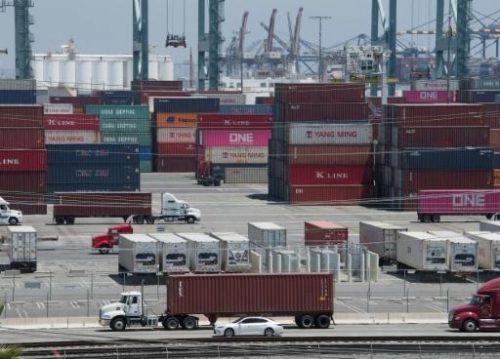Imports at major retail container ports in the U.S. reached unusually high numbers just before new tariffs on goods from China took effect September 1 and are expected to surge again before another round of tariffs takes effect in December.
“Retailers are still trying to minimize the impact of the trade war on consumers by bringing in as much merchandise as they can before each new round of tariffs takes effect and drives up prices,” Jonathan Gold, National Retail Federation Vice President for Supply Chain and Customs Policy, said.
“That’s the same pattern we’ve seen over the past year, but we’re very quickly going to be at the point where virtually all consumer goods will be subject to these taxes on American families. The upcoming October talks with China are an opportunity to put a stop to this escalation, repeal the tariffs that have been imposed and focus on growing the economy.”
New 15 percent tariffs on a wide range of consumer goods from China took effect at the beginning of this month and are scheduled to be expanded to additional goods on December 15, covering a total of about USD 300 billion in imports. In addition, 25 percent tariffs on USD 250 billion worth of imports already imposed over the past year will increase to 30 percent on October 1.
U.S. ports handled 1.96 million TEUs in July, the latest month for which after-the-fact numbers are available. That was up 9.1 percent from June and up 2.9 percent year-over-year.
Numbers were high again in August, which was estimated at 1.93 million TEU, up 1.8 percent year-over-year. September is forecast at 1.85 million, down 0.7 percent from last year; October at 1.92 million TEU, down 5.5 percent; November at 1.97 million TEU, up 8.8 percent, and December at 1.77 million TEU, down 9.8 percent.
Likely driven by the new tariffs scheduled for December, November’s 1.97 million TEU would be the highest monthly total since the record 2 million TEU seen in October 2018.
The first half of 2019 totalled 10.5 million TEU, up 2.1 percent over the first half of 2018, and 2019 is expected to see a new record of 21.9 million TEU.

